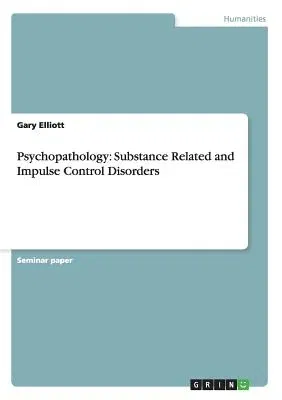Seminar paper from the year 2013 in the subject Psychology - Clinic and
Health Psychology, Abnormal Psychology, ( Atlantic International
University ), language: English, abstract: The drugs mentioned in this
paper each have their own specific effects on the user but they are
similar in the manner in which they are used and the treatment used when
working with the abuser. A 'substance' is a chemical compound that
alters behaviour or mood when ingested. This group includes alcohol,
nicotine, caffeine, heroin and cocaine along with chocolate and soft
drinks. The vast majority of users of the 'safe' drugs are not perceived
as addicts, they can be equally as addictive and harmful to one's
health. There is a clear distinction between a user and an abuser of
drugs. 'Substance use' suggests that the individual ingests the drug in
moderate amounts that have no significant effect on their social,
educational or occupational functionality. The drug has the ability,
based on the quantity ingested to create impaired judgement, mood
changes and lowered motor ability; this result is referred to as
intoxication. 'Substance abuse' as an extension of 'use' is really
defined on how the use of the drug affects the individual's
relationships, his work or education and whether it causes him to place
himself or others in physically dangerous situations (Barlow & Durand:
2005). 'Drug dependence' is often described as addiction. There is
however some disagreement in how we best define substance dependence
(Woody & Cacciola: 1997). One definition would explain how the
individual requires systematically greater quantities of the drug to
experience the same level of intoxication (tolerance), and will behave
negatively if the drug is not ingested (withdrawal) (Franklin & Frances:
1999). An alternate view on substance dependence pertains to the
behaviour that focuses on finding the required drug as a dependence
indicator. A different view of substance dependence focuses on the drug


